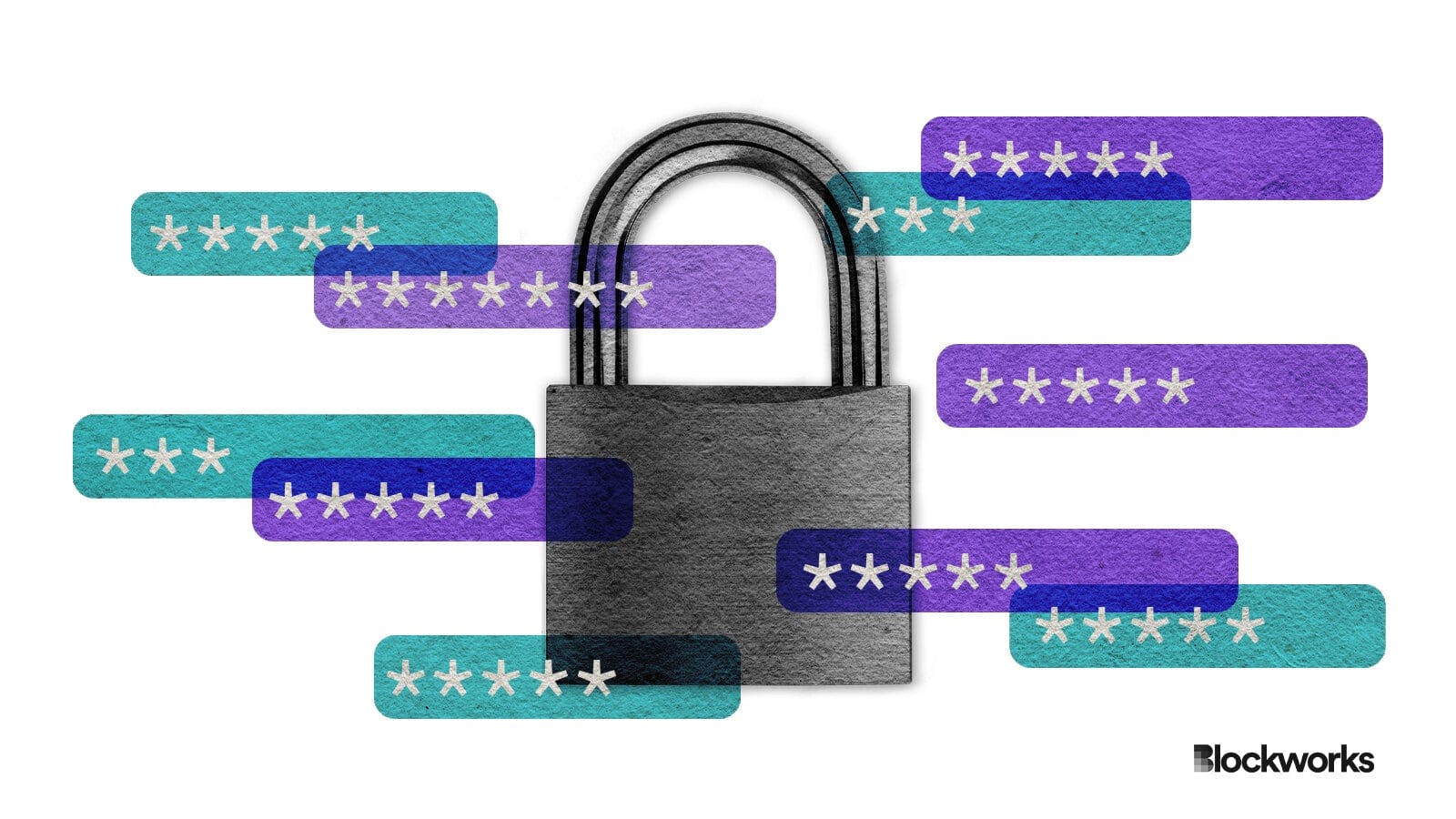What is fully homomorphic encryption and how will it change blockchain?
FHE differs from zero-knowledge technology, as it can perform computation on top of encrypted data without revealing data points

Artwork by Crystal Le
In today’s digital world, the need to decrypt data for computational tasks exposes it to security risks.
This is a significant problem in privacy-sensitive sectors like Web3, where decentralized applications and finance at times rely on both confidentiality and integrity in data processing to maintain trust and security on chain.
Fully homomorphic encryption (FHE) offers a potential solution by enabling the processing of encrypted data without needing to decrypt it first, thus preserving confidentiality. This advancement not only enhances data security and privacy, but also extends the potential for secure data analysis and decentralized services.
Guy Itzhaki, CEO and co-founder of Fhenix, says that in the context of blockchain, FHE enables developers and users to control which assets they want to maintain privately and confidentially on-chain.
This means that it will enable developers to “create a new set of use cases,” and “unlock the way for true on-chain gaming, voting, and auctions,” Itzahki said.
Read more: Encryption startup Fhenix raises $7M for private computation
Although there are some similarities between FHE and zero-knowledge (zk) technology, the major difference is that FHE technology can perform computation on top of encrypted data without having to reveal or know the data points to obtain the end result.
Liam McDonald, head of growth at blockchain privacy startup Fairblock, explained that with zk technology, a prover turns necessary data into a secure code called a polynomial commitment to show it’s accurate.
“In order to do this, the data itself is turned into polynomial hashes and is aggregated into a polynomial equation of the hashes that represents the encoded data,” McDonald told Blockworks.
This equation is then sent to a verifier, who determines whether the function is true. If the function is proven, a proof is generated, confirming that the information inside is accurate.
Peyman Momeni, co-founder of Fairblock, mentioned that while zk proofs allow users to validate ownership of data or correct computation, they fall short in supporting computations on encrypted data, especially when it involves merging private information from multiple users.
“Zk is more relevant for scalability with some degree of security and limited privacy applications like shielded transfers, where FHE unlocks wide range of applications coupled with higher levels of data security and privacy,” Momeni said.
FHE in practice
When combined with the benefits of the blockchain, FHE provides enhanced privacy, which is a core component that is missing in the existing blockchain ecosystem, said Kaal Dhairya, a Shiba Inu developer.
“Apart from true end-to-end encryption of data, this opens up a variety of use cases, including supply chain/food chain to blockchain, private voting for DAOs, efficient prediction markets, on-chain casino games, hidden items in on-chain games, and many more,” Dhairya said.
Momeni notes that in most crypto use cases, it is necessary to combine private inputs from multiple users, compute over them and decrypt the results, meaning that there would be a “shared private state.”
“As an example in private governance or sealed-bid auctions, all users encrypt their votes or bids, we perform on-chain computing over encrypted data, then in the end we need to decrypt the actual results,” he said. “In this case we don’t actually decrypt the individual bids/votes/trades, just the updated state or the result of computation.”
Read more: Fully homomorphic encryption rollups are one step closer to reality
To ensure no single user has exclusive access, a system of multiple validators should share this decryption key, and decrypt the information collaboratively at the appropriate time.
According to Momeni, current FHE technologies face the technical hurdle of creating a decentralized system for managing these decryption keys. Fairblock, however, is developing a solution with a decentralized network for key generation, aiming to make FHE technology more accessible and practical for developers and various platforms.
Different solutions for different privacy needs
It’s worth noting that FHE isn’t the only privacy solution being developed on the blockchain today; there are several other solutions that might be more beneficial for developers building different tools.
“There are different solutions with different trade-offs, so we’re trying to enable developers to use them correctly without passing a cryptography course,” Momeni said.
Read more from our opinion section: Privacy is going mainstream
In the case of Fairblock, the company sees itself as being similar to Axelar, Eigenlayer, or Celestia, where a network facilitates and accelerates other builders.
“Instead of cross-chain messaging, shared security, and data availability, we’re abstracting away all of the bandwidth overhead, onboarding and maintenance costs of running the network in a secure and decentralized way,” he said.
The company recently rolled out its public testnet, which is designed for developers of select layer-2 networks to tailor how they integrate encryption and decryption into applications. It currently enables users to leverage identity-based encryption (IBE), witness encryption (WE) with integration of fully homomorphic encryption still under development.
Updated March 13, 2024 at 9:52 am ET: Clarified example of sealed-bid auctions.
Updated March 13, 2024 at 9:13 am ET: Clarified relevance of zk for scalability.
Get the news in your inbox. Explore Blockworks newsletters:
- The Breakdown: Decoding crypto and the markets. Daily.
- Empire: Crypto news and analysis to start your day.
- Forward Guidance: The intersection of crypto, macro and policy.
- 0xResearch: Alpha directly in your inbox.
- Lightspeed: All things Solana.
- The Drop: Apps, games, memes and more.
- Supply Shock: Bitcoin, bitcoin, bitcoin.






